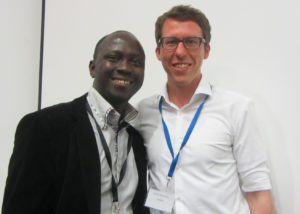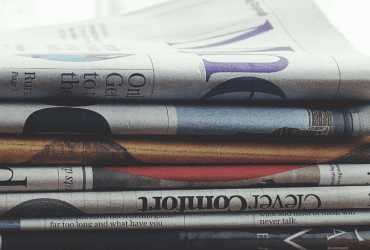By Idris Akinbajo
LONDON — Gavin MacFadyen’s passion could be heard in his voice as he welcomed the scores of journalists and media professionals gathering for a three-day investigative journalism conference organized by the Centre for Investigative Journalism in London.
Journalism in the UK and indeed globally was at a crucial stage, said MacFadyen, the centre’s director. Only good investigative journalism, he said, can help restore public confidence in the Fourth Estate.
For three days, the attendees took part in seminars and training sessions at the Goldsmith University of London. As expected by anyone who has attended such journalism conferences, the first challenge facing an attendee was always deciding what sessions to attend.
While the sessions involved various investigative techniques like story mapping, sourcing and so on, my primary interest was data journalism.
With increasing government transparency in Nigeria because of the country’s maturing democracy, more government data is becoming available. But the sheer volume and complexity of some of the data means basic investigative journalism skills might not be enough to analyze the information. How to sort the data, knowing where to look and how to understand the data were some of the essential techniques I wanted to develop.

The only other Nigerian at the conference, Toyin Akinniyi, shared similar views. Participating as an employee of an international organization in Nigeria, Toyin and I talked about the government agencies that had made their data public, the absence of data journalism in most Nigerian newsrooms, and the efforts her agency could make to organize such trainings in Nigeria.
With the help of the Fund for Investigative Journalism, which financed my participation, I attended the conference hoping to get the most I could out of it. Since my focus was data journalism, I attended most of the sessions relating to it, from beginners to the advanced sessions. The trainers, drawn from various institutions like the UK Guardian and academia, showed mastery not only of the subjects but also of teaching to willing learners. One theme that kept repeating itself was that data journalism was not a standalone effort.
People think data journalists are computer geeks who just sit by their computers, looking at data, reviewing and analysing them, Crina Boros, one of the trainers, said. But she noted that you still have to do the legwork, make the phone calls, talk to sources and all other things journalists do.
Three days at the conference were barely enough. The morning to evening sessions meant a lot of the participants barely had time for sufficient networking, an essential aim of such conferences.
However, the last seminar at the conference couldn’t have been better timed. Bastian Obermayer and Frederik Obermaier, the lead journalists in the Panama Papers leaks, spoke about their roles in one of the greatest leaks in journalism history.
Bastian reiterated one of the best messages to emerge from the Panama papers: Increasingly, journalists must work in international teams to produce the best stories.
Networking at conferences like that of the CIJ create avenues to establish such partnerships.



